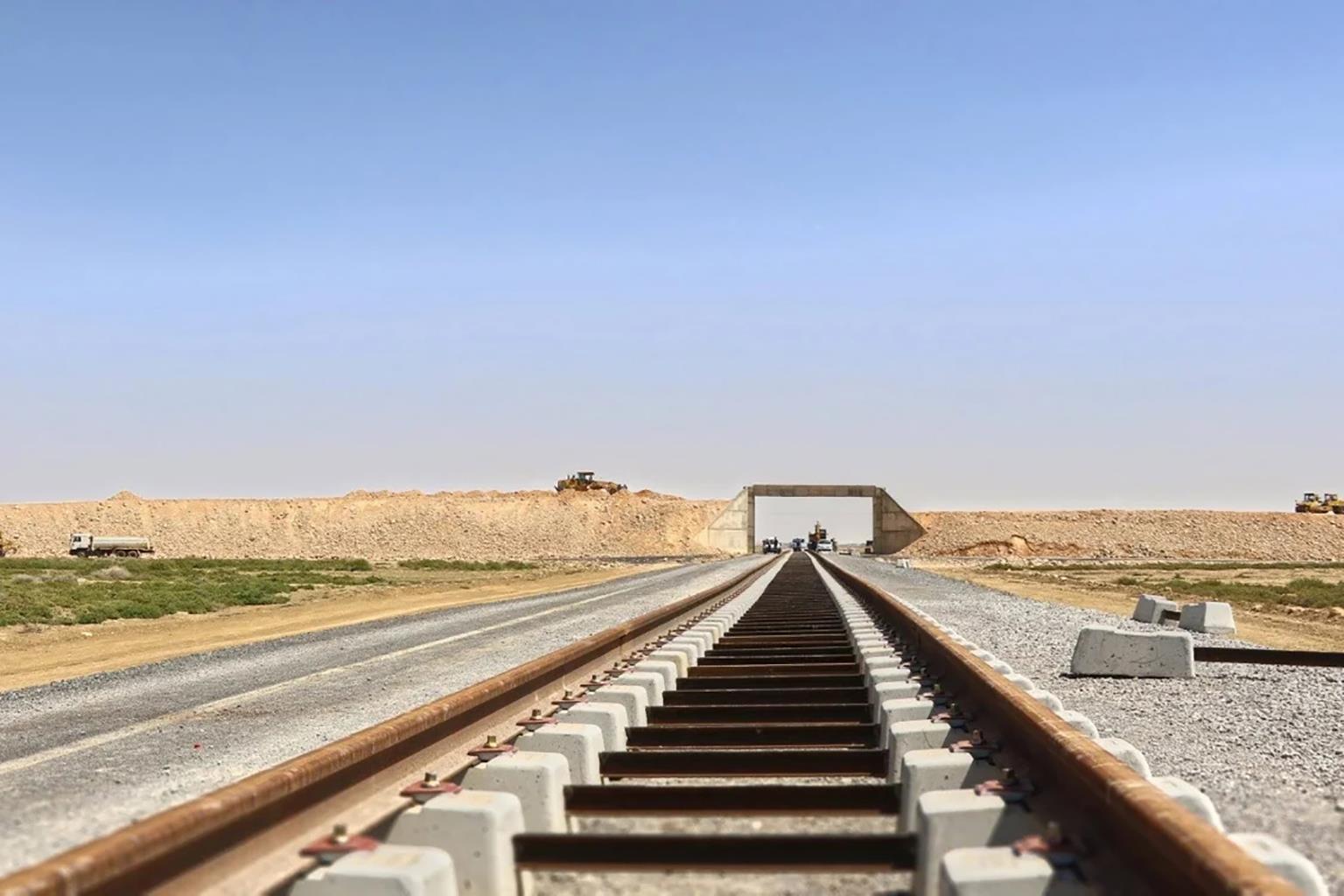Algeria taps China for major rail expansion
The largest country in Africa aims to triple the size of its railway network
 Photo source: Railway Gazette
Photo source: Railway Gazette
Algeria is witnessing significant investments to expand its rail network, with China playing a central role. In a country where much of the topography is a desert and population dispersed railways are considered a more favourable solution. Currently, Algeria has about 4,800 km of rail lines in operation, with over 2,700 km under construction and an additional 7,800 km under consideration for future development. The goal is to connect all regions of the republic.
In August 2023, Algeria and China formalised an agreement to construct approximately 6,000 km of railway lines, as part of the two countries' broader cooperation under China’s Belt and Road Initiative. The initiative has been described as a transformative step for the country, aimed at enhancing mining operations, facilitating trade, and driving economic growth.
One of the important projects in Algeria’s rail expansion is the Central Penetrating Line. This railway will connect Algiers in the north to the southern city of Tamanrasset in the Sahara Desert region, spanning over 2,400 km. Parts of the line are already operational. Once completed, it will link Algeria to key African transport corridors, integrating the country with the broader continent and boosting cross-border trade.
Equally significant is the Western Algeria Mining Line, a 575 km railway connecting the Gara Djebilet iron ore mine in southwestern Algeria to the national rail network and ports. Gara Djebilet is one of the world’s largest iron ore reserves, with an estimated 1.7bn tonnes of exploitable deposits. The project, jointly developed by China Railway Construction Corporation (CRCC) and Algeria’s state-owned Cosider Travaux Publics, is expected to help China reduce its reliance on iron ore imports from markets such as Australia and Brazil, enhancing its supply chain security. For Algeria, the project represents a move to diversify export revenues away from its oil and gas industries.
To support the construction of the Western Algeria Mining Line, CRCC recently opened a railway sleeper manufacturing factory in the western Tindouf Province. This facility, the first standardised concrete railway sleeper factory in the region, will produce 1.2m railway sleepers for the project.
Algeria’s railway ambitions are also creating opportunities for train manufacturers. The government intends to spend about US$2.8bn by 2035 to procure a variety of trains for its expanding network. These purchases will include high-capacity locomotives, passenger transport cars, self-propelled trains, high-speed trains, freight coaches, and manoeuvring locomotives.
References
‘How North African railway is on track to helping China de-risk its iron ore supply’, South China Morning Post, 08 April 2024
‘Chinese workers building key rail line in Algeria. What's in it for Beijing?’, WION, 09 April 2024
‘Algeria partners China for construction of 6,000km railway lines’, Africanews, 13 August 2024
‘Railways ‘at centre’ of Algeria’s evolution, says UK ambassador’, Arabian Gulf Business Insight, 02 October 2024
‘Algeria’s president pushes for fast-tracking of strategic mining projects’, Zawya, 09 October 2024
‘How Algeria's rail expansion is shaping its future’, Euronews, 31 October 2024
‘Algeria to spend $2.8bln on new trains’, Zawya, 12 November 2024
‘Railway milestone reached in Sino-Algerian project’, China Daily, 12 November 2024
‘Boughezoul–Laghouat Line’, Wikipedia, Accessed 05 December 2024
‘Gâra Djebilet mine’, Wikipedia, Accessed 05 December 2024














/enri-thumbnails/careeropportunities1f0caf1c-a12d-479c-be7c-3c04e085c617.tmb-mega-menu.jpg?Culture=en&sfvrsn=d7261e3b_1)

/cradle-thumbnails/research-capabilities1516d0ba63aa44f0b4ee77a8c05263b2.tmb-mega-menu.jpg?Culture=en&sfvrsn=1bc94f8_1)







